Filter by
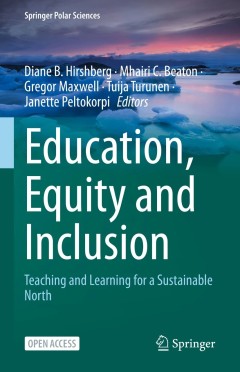
Education, Equity and Inclusion : teaching and learning for a sustainable north
This open access book provides a current view on education, equity and inclusion within the lens of education for a sustainable North. The first book published by the University of the Arctic Thematic Network for Teacher Education for Social Justice and Diversity (Including the North: A comparative study of the policies on inclusion and equity in the circumpolar North, 2019) highlighted policie…
- Edition
- 1
- ISBN/ISSN
- 9783030974602
- Collation
- viii, 260p. : ill.
- Series Title
- -
- Call Number
- 371.207 EDU e
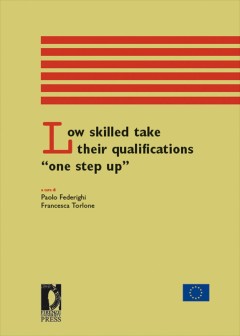
Low Skilled Take Their Qualifications "One Step Up"
Adult learning is recognized as a key component of lifelong learning and Member States are required to remove barriers to participation, to increase overall quality and efficiency in adult learning, to speed up the process of validation and recognition and to ensure sufficient investment in and monitoring of the field (European Commission, 2006, 2007; European Parliament, 2008; European Council…
- Edition
- -
- ISBN/ISSN
- 9788864531793
- Collation
- x, 109p : ill.
- Series Title
- -
- Call Number
- 374 LOW l
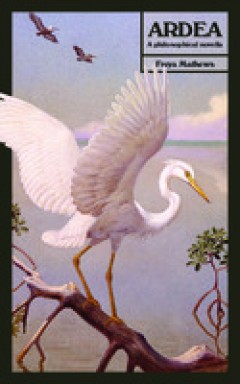
Ardea : a philosophical novella
What is soul? Can it be forfeited? Can it be traded away? If it can, what would ensue? What consequences would follow from loss of soul — for the individual, for society, for the earth? In the early nineteenth century, Goethe’s hero, Faust, became a defining archetype of modernity, a harbinger of the existential possibilities and moral complexities of the modern condition. But today the dir…
- Edition
- -
- ISBN/ISSN
- 9780615845562
- Collation
- x ; 70p. : ill.
- Series Title
- -
- Call Number
- 170 FRE a
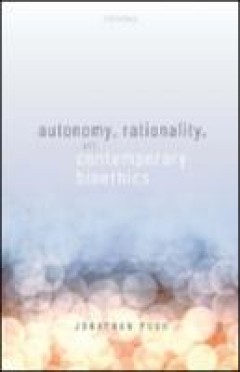
Autonomy, rationality, and contemporary bioethics
In this book, I bring recent philosophical work on the nature of rationality to bear on the question of how we should understand autonomy in contemporary bioethics. In doing so, I develop a new framework for thinking about the concept, one that is grounded in an understanding of the different roles that rational beliefs and rational desires have to play in personal autonomy. Furthermore, the ac…
- Edition
- -
- ISBN/ISSN
- 9780198858584
- Collation
- ix ; 287p. : ill.
- Series Title
- -
- Call Number
- 174.2 JON a
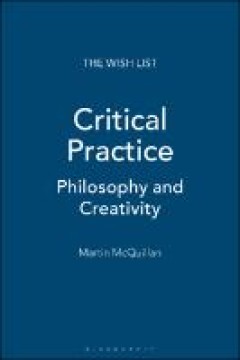
Critical practice : philosophy and creativity
This book is available as open access through the Bloomsbury Open Access programme and is available on www.bloomsburycollections.com. What is the relationship between theory and practice in the creative arts today? In Critical Practice, Martin McQuillan offers a critical interrogation of the idea of practice-led research. He goes beyond the recent vocabulary of research management to consider t…
- Edition
- -
- ISBN/ISSN
- 9781780931005
- Collation
- viii; 272 pg.
- Series Title
- The WISH List,
- Call Number
- 801.95 MAR m
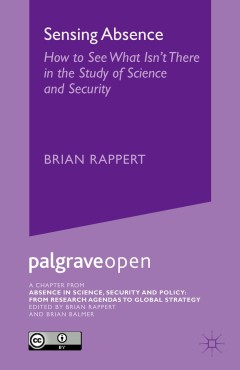
Sensing absence: how to see what isn't there in the study of science and secu…
This is a chapter from Absence in Science, Security and Policy edited by Brian Rappert and Brian Balmer. This chapter is available open access under a CC BY license. Part reflection on the forthcoming chapters, part analysis of academic literature, and part programmatic agenda setting, this introduction chapter forwards the importance of questioning taken for granted assumptions in sensing what…
- Edition
- -
- ISBN/ISSN
- 9781137592613
- Collation
- 34 PG.
- Series Title
- -
- Call Number
- 500 SEN s
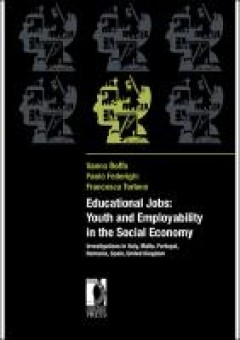
Educational Jobs: Youth and Employability in the Social Economy
In Europe the social economy employs almost 15 million workers. During the crisis years, unlike other sectors, it has often generated an increase in jobs. The aim of this comparative study is to investigate how to allow the supply and demand for young people to meet in the different types of social economy bodies. In particular, it concentrates on the problem of how to bring into line initial u…
- Edition
- -
- ISBN/ISSN
- 9788866558293
- Collation
- 218p : ill
- Series Title
- -
- Call Number
- 330 EDU e
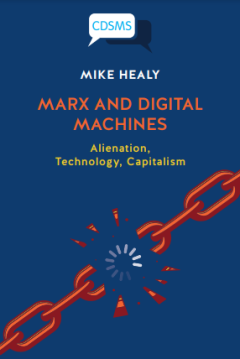
Marx and digital machines : alienation, technology, capitalism
This book explores the fundamental contradiction at the heart of the digital environment: technology offers all manner of promises, yet habitually fails to deliver. This failure often arises from numerous problems: the proficiency of the technology or end-user, policy failure at various levels, or a combination of these. Solutions such as better technology and more effective end-user education …
- Edition
- -
- ISBN/ISSN
- 9781912656806
- Collation
- xiii, 172p
- Series Title
- -
- Call Number
- 004 MIK m
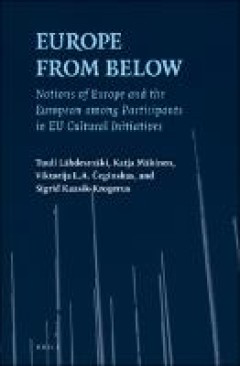
Europe from below
In this book, Tuuli Lähdesmäki, Katja Mäkinen, Viktorija L. A. Čeginskas, and Sigrid Kaasik-Krogerus scrutinize how people who participate in cultural initiatives funded and governed by the European Union understand the idea of Europe. The book focuses on three cultural initiatives: the European Capital of Culture, the European Heritage Label, and a European Citizen Campus project funded th…
- Edition
- -
- ISBN/ISSN
- 9789004449800
- Collation
- xvi; 235 pg; ill.
- Series Title
- -
- Call Number
- 306.094 EUR

Chance encounters
In this rigorous and necessary book, Kristien Hens brings together bioethics and the philosophy of biology to argue that it is ethically necessary for scientific research to include a place for the philosopher. As well as ethical, their role is conceptual: they can improve the quality and coherence of scientific research by ensuring that particular concepts are used consistently and thoughtfull…
- Edition
- -
- ISBN/ISSN
- 9781800648517
- Collation
- x; 256 pg; ill.
- Series Title
- -
- Call Number
- 823.92 CHA c
 Computer Science, Information & General Works
Computer Science, Information & General Works  Philosophy & Psychology
Philosophy & Psychology  Religion
Religion  Social Sciences
Social Sciences  Language
Language  Pure Science
Pure Science  Applied Sciences
Applied Sciences  Art & Recreation
Art & Recreation  Literature
Literature  History & Geography
History & Geography